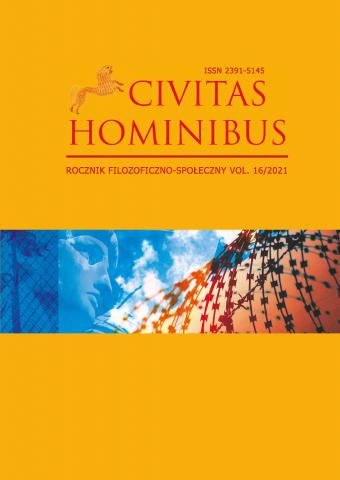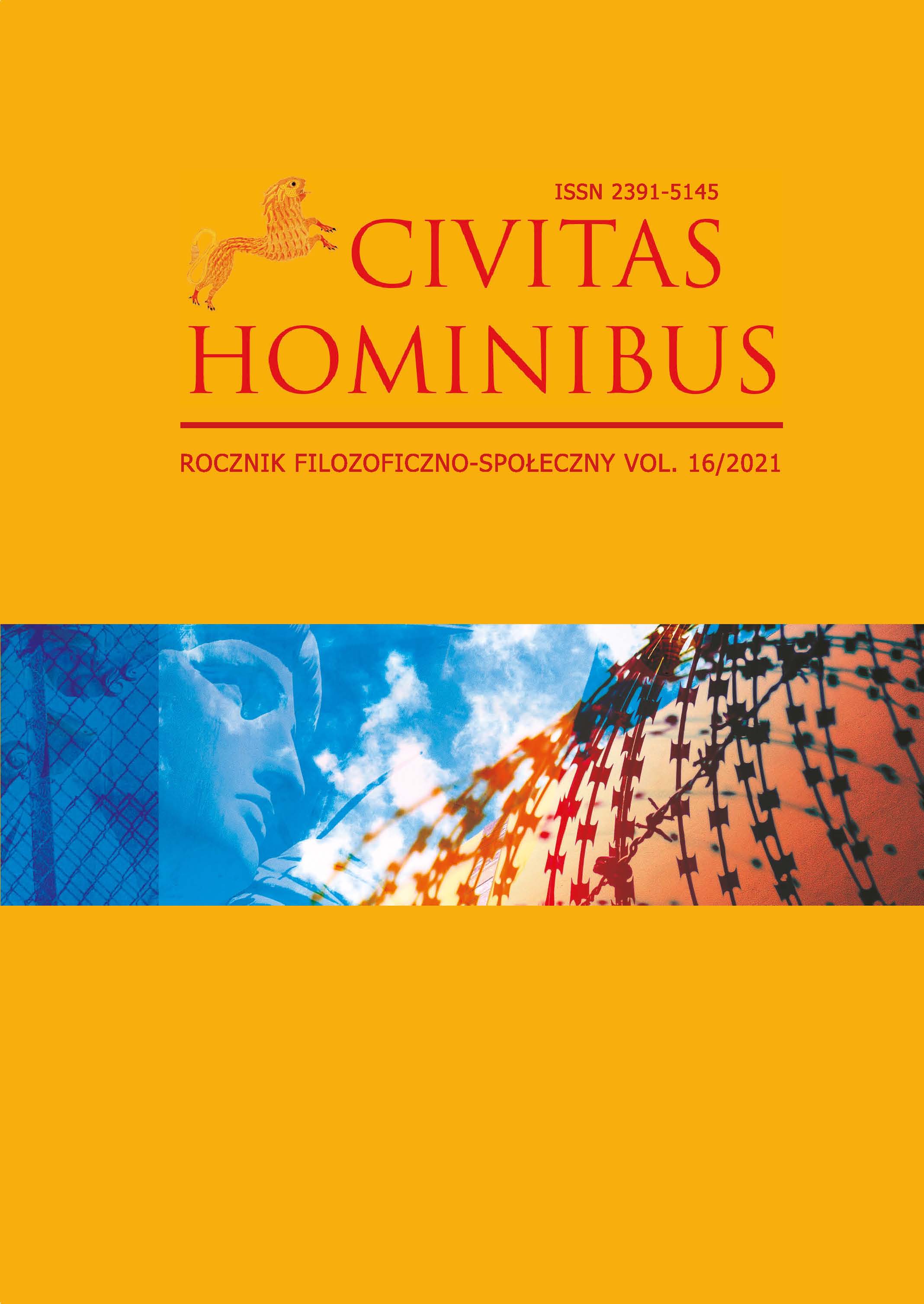16/2021

From the early 1990s demographic changes in Poland, characterised by an increase in life expectancy and a decline in fertility rates, have resulted in an increase in the old-age dependency ratio. An ageing population poses demographic and socio-economic challenges which, in turn, lead to a steady increase in public spending and changes in the functioning of pension systems. Pension benefits may be reduced and the retirement age increased. The increase in the proportion of the elderly in the population should therefore prompt us to take countermeasures to eliminate at least some of the negative effects. This article points out the significant links between demographic changes and the deteriorating situation of the pension system. It emphasizes that the reforms of the pension system, which are not always widely supported by society, become a condition for the realization of one of the most important principles of sustainable socio-economic development-intergenerational equity. The main objective of this paper is to identify the most significant implications of the demographic crisis on changes in the socio-economic situation of the country, using the example of the pension system, and to present selected solutions in order to better adapt to the new demographic order. The focus is on the need to increase the labour force participation of senior citizens, whose potential is insufficiently utilized. Due to the complexity and comprehensiveness of the problem, the article provides only a limited outline of the issues.
Keywords: economic activity, demography, social politics, labour market, population ageing, retirement age, demographic changes
A pedagogical discourse on pedagogical sovereignty in the de facto problematic sense does not exist. The discourse on pedagogical sovereignty is largely based on the intuitive-partial reintegration and reinterpretation of knowledge established within various scientific disciplines, in particular: philosophy, history, psychology, sociology, political science and law. This applies to the definition and examination of various types of subjects of interest, including pedagogy itself, i.e. identity, authority, autonomy, individualism, reason, knowledge of various kinds (including virtual knowledge), responsibility, security and, above all, the features of power in terms of its sovereignty In this context, it seems that one should only look for what Dietrich Benner describes as the "basic structure of pedagogical thinking and action" and the specificity of the interdisciplinary status of the very question of pedagogical proprium of sovereignty in general. This article is therefore an attempt to conceptualize knowledge about the really existing abstract idea of pedagogical sovereignty.
Keywords: sovereignty, pedagogical power, authority, sovereign
The author presents cultural facts in the development of contemporary music and the participation of artificial intelligence in creating, co-creating, and performing music. Brochocka sees a parallel between the rapidly growing disparity of knowledge and skills leaning towards computers and electronics
People overshadowed by vision and pleasure seem to forget more and more the hardship of acquiring knowledge. The article recalls technical and philosophical problems, the advantages and dangers related to the current state of musical theory and practice.
The Land of Musethics is a fantastic tool for visualizing and delving into the intricate world of sounds heard in the moment or captured for later experience.
This article is a case study of St. Mary Magdalene’s Church in Lviv and the efforts of parishioners to regain the church for the parish and the faithful in the context of the reality of the multinational border city. Based on data obtained during interviews with various figures (Consul General of the Republic of Poland in Lviv, the Metropolitan Curia in Lviv, the parish priest of St. Maria Magdalena, the Head of the Department of Culture of the City of Lviv, the Head of the Historical Environment Protection Department of the City of Lviv, the directors of the Lviv Organ and Chamber Music Hall in Lviv, director of the Polish School of St. Mary Magdalene in Lviv and a parishioner from the parish of St. Mary Magdalene), as well as information on Ukrainian legal acts and articles in the Ukrainian and Polish press, consecutive stages of the dispute over the recovery of the church are described. The article also considers the politicization of the dispute and discusses the activities of politicians and other actors who have been involved. Furthermore, an attempt was made to answer the question whether thirty years of Ukraine's independence resulted in either the expansion or restriction of the actual political freedom of this country, with a particular emphasis on the question of whether the country has become free from post-Soviet influence and whether it is free to such an extent that it can enforce its own law.
Keywords: historical policy, Polish-Ukrainian relations, Lviv, Ukraine, St. Mary Magdalene’s Catholic Church in Lviv
The aim of this article is to familiarize the reader with the concept of Sustainable Development Goals set by the United Nations as well as to prove that Sustainable Development Goals arise from human rights and are a framework for the rights to be realized. It is also described how two selected human rights – the right to food and the right to work – are realized through Sustainable Development Goals. It is also explained why society should care that an increasing percentage of the population lives in prosperity and how this relates to supply and demand in the market for innovation and technology. The possibilities of realizing selected two human rights using technology and innovation are presented, what solutions are available and what solutions humanity should devise to achieve its defined goals.
Keywords: sustainable development, human rights, technology.
This paper tackles the issue of derogation of State’s international obligations in the field of human rights protection. Although derogation clauses are often included in human rights treaties, their application is regarded as an exception rather than a rule and undergo strict scrutiny as to their legality. It is universally acknowledged that such derogation is allowed in the most severe of circumstances, usually referred as “war or other public emergency threatening the life of the nation”. The Author therefore considers whether the global COVID-19 pandemic might be categorized as such and thereby justify the measures undertaken by States to stop the spread of the coronavirus.
Keywords: human rights, ECHR, public emergency, derogation of human rights, SARS-CoV-2, threat to the life of the nation
In December 2020 NASA (National Aeronautics and Space Administration) announced a contract with a private company to deliver Moon material to Earth, the first and only contract of this type to be concluded to date. The sum that will be paid for the services of Lunar Outpost company was set at 1 US dollar. Although the arrangement may seem like a publicity stunt to catch international media attention, it spurs a legal discussion on the actual degree of freedom to utilized outer space. This article is focused on describing the USA’s policy and legislation concerning the utilization of natural resources of outer space, and comparing it to the international legal framework of outer space activities.
Keywords: space mining, outer space treaty, space industry, appropriation
We spend on average 90% of our time indoors. From the quality of the air we breathe to the materials used inside, the buildings in which we work, live and rest have a huge impact on our health and well-being. The spaces we inhabit play a key role in preventing the spread of disease. Sustainable buildings conserve natural resources, rely on good ventilation and are highly energy efficient. They reduce waste and air pollution and are built with non-toxic, sustainable materials. This article presents trends related to sustainable construction in the context of creating office spaces towards healthy, safe and flexible workplaces in pandemic and post-pandemic times.
Słowa kluczowe: green building, COVID-19, sustainability, wellbeing
The article deals with the issue of multiculturalism in current companies. The research conducted by the author intended to investigate different ways of dealing with culturally diverse teams in the work organizations.
Keywords: multiculturalism, diversity, organization


